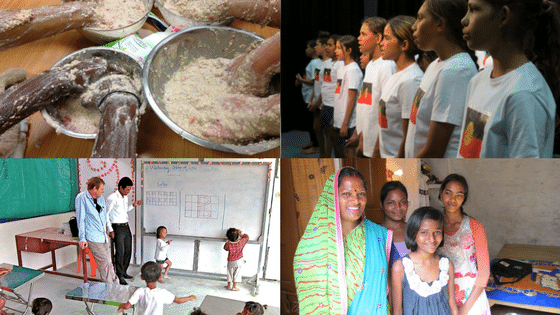The 100 Women Advisory Board and Grants Subcommittee are excited to announce that Expressions of Interest (EOI) are now open for our 2017 grants.
Our aim at 100 Women is to provide three grants of up to $30,000 that will support a world where all women and girls can live safely with access to health, education and economic freedom.
The EOI Form and Grant Guidelines can be downloaded here. Note EOIs and mandatory attachments need to be submitted via email by 30 June 2017.
The Grants Subcommittee – consisting of 100 Women members – will then review all EOIs and make recommendations to invite a select number of organisations to submit full grant applications in August.
Later in the year, all 100 Women members will be involved in a collective voting process to determine the successful grant recipients. An assessment summary will be provided on the grant finalists and members will be asked to have their say on where the money goes. If you are not already a member, leverage your giving and become a high impact philanthropist by joining today.
Writing effective grant applications
Are you new to submitting grant applications? Do you find the process of filling in grant forms daunting? If so, then keep reading for some tips to keep in mind when considering not just a 100 Women grant EOI but any grant submission.
Filling out a grant form takes time. Make the most of your valuable time by putting forward the best application that you can. Firstly, ensure that you read any guidelines to check you are eligible to apply in the first place and/or that the ‘thing’ you want to request funding for is supported.
If your organisation and your specific request are eligible, gather all your supporting documentation and dedicate some focussed time to completing the application, well ahead of the due date. Make sure you follow all instructions including submission methods, due dates, required attachments, word limits, funding amounts and any other requests.
With your responses, make sure you answer the specific question being asked and explain yourself, be clear but also concise and to the point. Don’t provide information that is not requested or responses that are long and verbose. The key is to communicate your idea effectively so that the reader knows exactly what you are trying to achieve / why it is being proposed / what the funds will be used for / what the outcomes will be. Your audience shouldn’t be left guessing or with unanswered questions. Strong responses in grant applications will communicate the requested information plainly and succinctly.
With budget line items as an example, ‘training costs’ is too broad – be specific by stating training venue hire, training materials for participants or training facilitator for 6 hours. As well, be realistic with the budget – do not put forward a budget that will be insufficient to achieve the outcomes and similarly do not exaggerate costs. Showing funding contributions from your organisation and/or others towards the total project costs is generally well regarded; this may be in-kind contributions as well as cash.
When you have a polished application complete, ask a family member or friend outside of your organisation who doesn’t know anything about your project to read it. This is a good test for whether your application is clear and easily understood by someone new to your organisation and project. If your ‘reviewer’ has questions, these are the response areas that need fine-tuning.
Remember that most grants are assessed in a competitive context whereby applications received far outweigh the available funding. Not all grant makers have the resources to contact you and clarify any questions that they have or remind you of missing requirements. Therefore put your best foot forward with your application by following all directions set by the grant-maker and taking the time to create a document that will be well received.
The 100 Women 2017 Grant Guidelines set out all the requirements for our EOI process. Further, quality proposals address the elements that we strong encourage (see six bullet points at the bottom of page 1). If you still have questions that are not answered in the Guidelines, you can email [email protected].
Happy grant writing!

